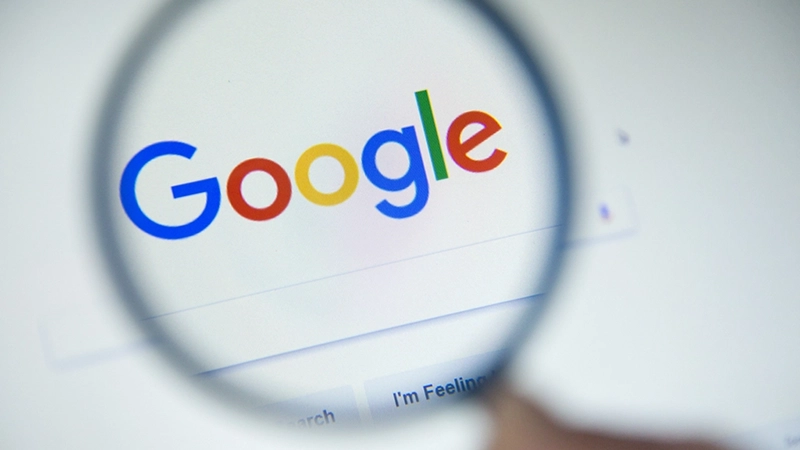Key takeaways from this article:
- Google’s Guidelines on AI Content: Google does not ban AI-generated content but emphasizes quality, relevance, and adherence to its Search Essentials guidelines.
- Risks and Benefits: While AI-generated content can be efficient and cost-effective, it also carries risks such as low-quality output and potential penalties if not managed properly.
- Best Practices: To avoid penalties and optimize AI-generated content for SEO, integrate human oversight, focus on user-centric content, and stay updated with Google’s guidelines.
Google’s stance on AI-generated content
Google’s stance on AI-generated content is nuanced. The search giant does not outright ban AI-generated content but emphasizes the importance of quality and relevance.
Google’s primary concern is to ensure that content meets its Search Essentials guidelines, which focus on providing valuable, original, and user-centric information.
If AI-generated content is deemed to be spammy, low-quality, or manipulative, it may face penalties, including lower rankings or even deindexation.
Statement from WP SEO AI on this matter
We understand that you may be concerned about the potential harm AI could cause to your website. Our responsible SEO Manager and Head of Marketing, Max Schwertl, has been closely monitoring developments over the past few months, especially concerning our nearly 400 customers.
Since we can populate our own Google Search Console, we are able to see whether any of our clients have been penalized.
Finding: not a single site of all our customers was punished by Google. But why is this the case? Let’s examine two factors. First, let’s review what Google states about AI-generated content on their official website:
Google’s Guidelines on AI Content
Key takeaways from these guidelines:
- Quality over production method: Google emphasizes that content quality is the main criterion for ranking, irrespective of whether it’s created by humans or AI.
- Rules against manipulation: Using AI to create content primarily to manipulate search rankings is prohibited, considered spam, and will be penalized.
- Transparency encouraged: While not mandatory, Google suggests that website owners should disclose when AI has been used in the content creation process.
As long as you produce high-quality content with the user’s questions and needs in mind, you have nothing to fear.
This aligns with what Google advises on their website for creators considering AI-generated content:
As explained, however content is produced, those seeking success in Google Search should aim to produce original, high-quality, people-first content demonstrating qualities of E-E-A-T.
So, how do we achieve this?
How does our solution create expert content that Is helpful to your customers?
- We have hardcoded and taught our AI how to craft user-centric and helpful content.
- Through specific content types we offer, such as educational content, how-to guides, or frequently asked questions, we create value for the reader.
- Through knowledge bases, where we can pull expert data online, we instruct the AI to craft your content based on expert knowledge, which could include study findings, transcripts from webinars, or forum articles on a specific topic.
We are very aware of recent Google updates, will stay informed, and act proactively on any major changes. But for now, we and our clients are perfectly in line with the quality requirements of Google.
Risks of using AI-generated content
While AI-generated content offers numerous advantages, it also comes with significant risks. One of the primary concerns is the potential for low-quality output.
AI tools, despite their sophistication, can sometimes produce content that lacks depth, originality, and engagement. This can lead to a poor user experience, which may negatively impact your website’s reputation and SEO performance.
Another risk involves compliance with Google’s guidelines. AI-generated content that is deemed spammy, manipulative, or of low quality can attract penalties from Google, including lower search rankings or even deindexation. Additionally, the ethical implications of using AI for content creation, such as issues of authorship and the spread of misinformation, cannot be overlooked.
Therefore, it’s crucial to use AI responsibly and ensure rigorous quality control to mitigate these risks.
Google core update in March 2024
Recent updates, such as the March 2024 core update, have shown that Google is actively targeting content that abuses AI for mass production without adding real value. Websites that rely heavily on AI-generated content without proper oversight and quality control are at risk of manual actions and algorithmic penalties. Therefore, while AI can be a powerful tool for content creation, it must be used responsibly to align with Google’s standards.
Read one of the best studies we found here: Websites Penalized by Google
What does Google want?
The secret is, noone knows. Maybe Google does.
Google’s algorithms are the backbone of its search engine, determining how content is ranked and displayed in search results. These algorithms are designed to prioritize high-quality, relevant, and user-centric content.
They analyze various factors, including keyword usage, content originality, and user engagement, to assess the value of a webpage.
Have you heard about the recent Google Leak, where they published more than 14.000 ranking attributes? No? Then you might want to start digging here: Secrets from the Algorithm
Benefits of AI-generated content
AI-generated content offers numerous advantages for businesses and content creators.
One of the primary benefits is efficiency. AI tools can produce large volumes of content quickly, allowing businesses to maintain a consistent publishing schedule without overburdening their human writers. This can be particularly useful for generating routine content like product descriptions or social media updates.
Another significant benefit is cost-effectiveness. By automating parts of the content creation process, businesses can reduce labor costs and allocate resources more strategically.
Additionally, AI tools can analyze data to identify trending topics and optimize content for SEO, ensuring that it reaches the right audience. For more insights on AI tools, check out 10 Top Features to Look for in an AI Writing Tool.
How to avoid penalties from Google
To avoid penalties from Google, it’s essential to prioritize quality and relevance in your AI-generated content. Ensure that your content adheres to Google’s Search Essentials guidelines, which emphasize providing valuable, original, and user-centric information.
- Regularly review and update your content to maintain its accuracy and relevance, and avoid practices like keyword stuffing or cloaking, which can trigger penalties.
- Implement rigorous quality control measures to oversee AI-generated content. This includes human editing to enhance depth and engagement, ensuring the content meets Google’s standards. Additionally, stay informed about Google’s latest updates and guidelines to adapt your content strategy accordingly.
Best practices for using AI in content creation
To harness the power of AI in content creation effectively, it’s essential to integrate human oversight.
AI tools can generate initial drafts, but human editors should refine the content to ensure it meets quality standards and engages readers.
This hybrid approach combines the efficiency of AI with the creativity and critical thinking of human writers.
Additionally, focus on creating user-centric content. AI can help identify trending topics and optimize for SEO, but the final content should provide genuine value to the audience. Regularly update and review your AI-generated content to maintain its relevance and accuracy.
Optimizing AI-generated content for SEO
To optimize AI-generated content for SEO, focus on things like:
- Integrating relevant keywords naturally throughout the text. This ensures that the content aligns with search engine algorithms without appearing forced or spammy.
- Prioritize creating high-quality, user-centric content that provides genuine value to readers. This approach not only enhances user engagement but also aligns with Google’s Search Essentials guidelines.
- Regularly updating and reviewing your AI-generated content is crucial. This helps maintain its relevance and accuracy, which are key factors in achieving higher search rankings.
- Implementing human oversight to refine and enhance AI-generated drafts can significantly improve the content’s depth and engagement.
For more tips on automating your SEO efforts, explore Automate Your SEO with WP SEO AI.
FAQ
1. How does AI-generated content impact the concept of E-E-A-T (Experience, Expertise, Authoritativeness, and Trustworthiness)?
AI-generated content can impact E-E-A-T positively if used correctly. By integrating expert data and ensuring human oversight, AI can produce content that demonstrates expertise and authoritativeness. However, without proper quality control, AI content may lack the depth and trustworthiness required to meet E-E-A-T standards.
2. Can AI-generated content be used for more complex content types, such as research papers or technical documentation?
Yes, AI-generated content can be used for complex content types, but it requires significant human oversight. AI can assist in data collection and initial drafting, but human experts should review and refine the content to ensure accuracy, depth, and relevance, especially for research papers or technical documentation.
3. What are the ethical considerations when using AI for content creation?
Ethical considerations include issues of authorship, transparency, and the potential spread of misinformation. It’s crucial to disclose when AI has been used in content creation and to ensure that the content is accurate and reliable. Additionally, businesses should consider the implications of replacing human jobs with AI.
4. How can businesses balance the use of AI-generated content with the need for human creativity and critical thinking?
Businesses can adopt a hybrid approach, where AI handles routine tasks and initial drafts, while human writers focus on refining the content, adding creativity, and ensuring it meets quality standards. This balance leverages the strengths of both AI and human capabilities.
5. What future trends can we expect in AI-generated content and its impact on SEO?
Future trends may include more advanced AI algorithms capable of producing even higher-quality content, better integration of AI with SEO tools, and increased emphasis on transparency and ethical considerations. As AI technology evolves, its impact on SEO will likely grow, making it essential for businesses to stay updated with the latest developments and best practices.






